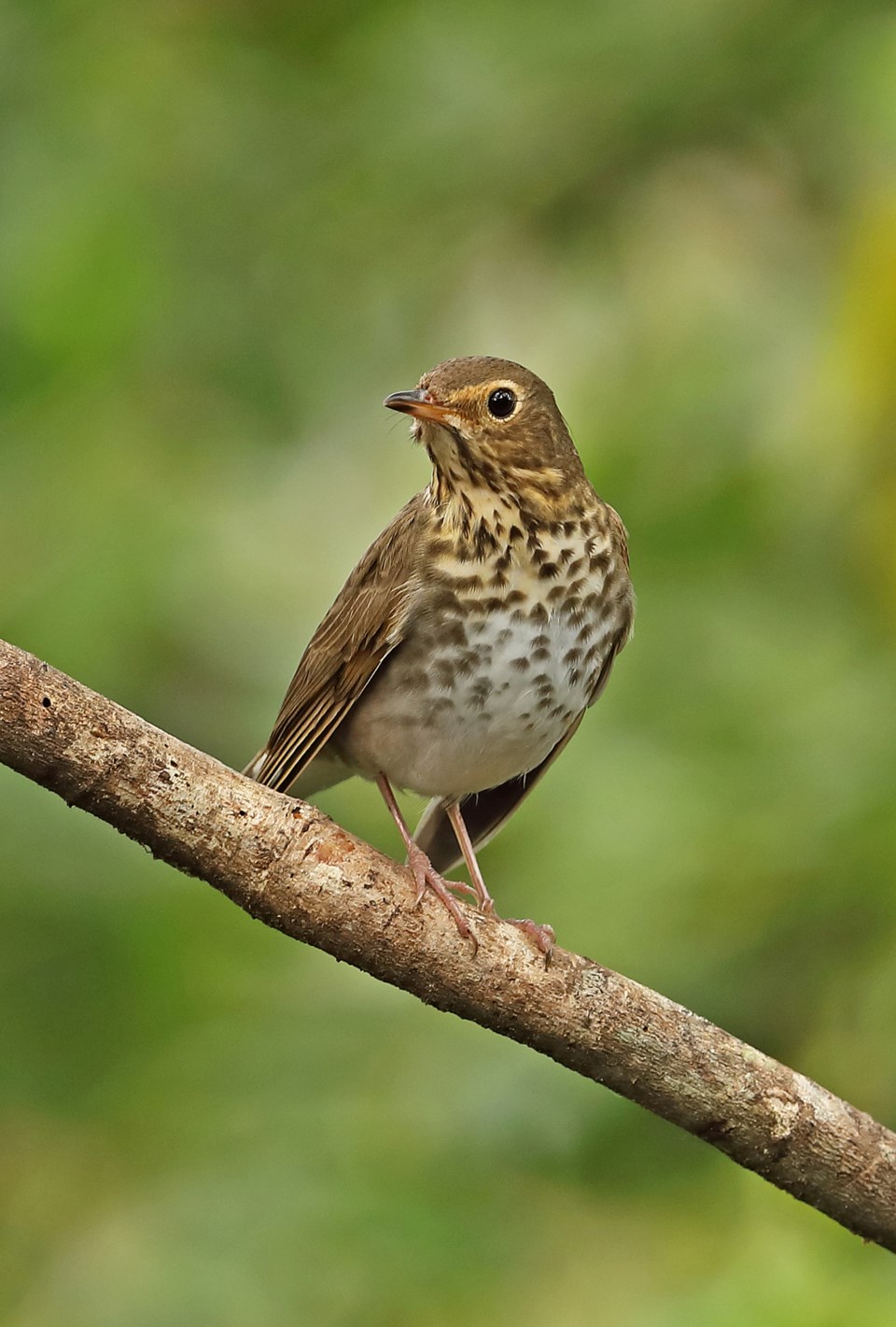April, May and June are the months of maximum bird song on the Sunshine Coast as our breeding birds engage in courtship and raising a family.
These pursuits trigger the male birds (usually only the males), to sing in order to attract a mate, and also serves to inform other birds that this is an occupied home territory and that others are therefore not welcome.
Bird song can be heard anywhere on the Sunshine Coast, though less so in the urban areas. I live on Redrooffs Road, Halfmoon Bay, surrounded by an open, second growth, mixed forest of Douglas fir, cedar, maple, alder, arbutus and ornamentals and it is prime listening habitat.
At this time of the year, from 4:30 a.m. to 10 p.m., the birds are singing. The dawn chorus is dominated by robins, Swainson’s thrush and spotted towhees, with contributions from other species. After this initial explosion of sound things quieten down considerably and proceed normally until about 11 a.m. If it is hot and sunny, songs tend to decline after that, though there is still plenty going on.
The mid-afternoon can be particularly quiet, especially if it is hot.
In the evenings most species are still singing sporadically, but with a more laid back ambience. By late evening, in the approaching dusk, the first two singers of the day, robins and Swainson’s thrush, are outlasting all their cohorts and still singing.
At the very end, near dark, the Swainson’s have the stage to themselves, and we are left to appreciate the elegiac beauty of their song in the perfect silence of the near darkness. Swainson’s thrush is our West Coast counterpart of the nightingale of Europe, renowned for its beautiful song and revered by the poets.
Swainson’s thrush and nightingales are members of the large, worldwide, thrush family, and are also lookalikes, both being an unadorned brownish colour. Their songs do the talking!
The all-day symphony of song in my Redrooffs garden features 30 or 40 species. Dominant species, rated by the abundance and duration of their song, are warbling vireo, white-crowned sparrow, house wren, Pacific-slope flycatcher, western tanager, and black-throated gray and orange-crowned warblers. Pine siskins, red crossbills, goldfinches and cedar waxwings are heard in overflights. There are also the neighbourhood regulars that do not sing: bald eagles, ravens, crows, woodpeckers, pigeons, hummingbirds, gulls and oystercatchers.
The Sunshine Coast is a special place to live on many accounts, but none more than the symphony of bird song that surrounds us.
To report your sightings or questions contact [email protected] or 604-885-5539. Good Birding.



